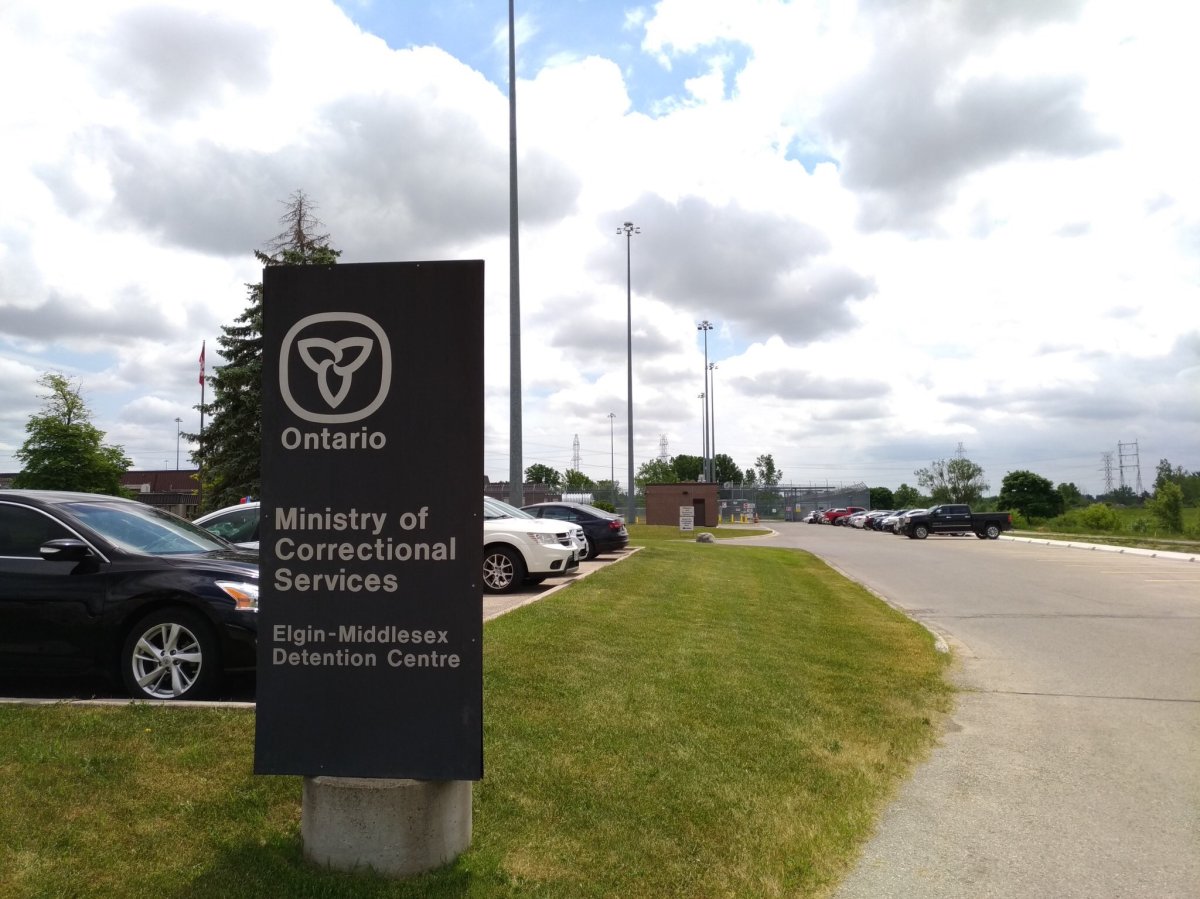London’s troubled Elgin-Middlesex Detention Centre is overcrowded, unsanitary, dangerous, and exhibits conditions that are dehumanizing and antithetical to prisoner rehabilitation and reintegration, writes Ontario’s human rights commissioner in a scathing letter to Ontario Solicitor General Sylvia Jones.

Conditions at EMDC are so poor, Renu Mandhane writes, that they are “among the worst” she has seen in the province, adding they fall “well short” of the principles outlined in the United Nations’ Standard Minimum Rules for the Treatment of Prisoners, also known as the Mandela Rules.
“Prisoners’ mental health, addictions and creed-related needs are not being adequately accommodated,” the letter states, adding correctional officers don’t have adequate training or support.
The conditions also pose a serious risk to the health and safety of both inmates and correctional staff, Mandhane says.
The letter from Mandhane, chief commissioner of the Ontario Human Rights Commission (OHRC), was sent to the province’s solicitor general on Friday, and comes nearly two months after the human rights commission was given a tour of the facility on March 21. Ten days after their visit, Sean William Tourand-Brightman would become the 14th inmate to die at the jail since 2009.
Aware of the deaths, Mandhane told 980 CFPL she had some sense of what she’d see at the detention centre.
“There is sort of a visceral reaction when you walk through Elgin-Middlesex,” Mandhane said.
“I’ve visited many institutions across the province over the years. Certainly, Elgin-Middlesex ranks up there as one of the sort of worst set of conditions that I’ve seen.”
WATCH: (Aug. 9, 2018) Seven inmates overdose at Elgin-Middlesex Detention Centre

Mandhane says the findings outlined in her letter come not just from their tour of the facility, but also from talks with union representatives, female and male prisoners, the jail’s superintendent and senior command, and senior officials with the Ministry of the Solicitor General.
Mandhane said during their tour, OHRC observed crowded and filthy conditions at the jail, and recalled entering one cell and finding three inmates with one on the floor near the toilet.
“You get a pretty clear picture when you enter a cell like that that these are conditions that are dehumanizing,” Mandhane added in her interview 980 CFPL.
“They create incredible stress and anxiety, which unsurprisingly sort of bubbles over into violence.”
She expanded on the population issues in her letter.
“When the jail is locked down, for example due to ongoing staff shortages, prisoners can spend multiple days locked in their cells,” she writes.
Inmates at the jail, many of whom are housed in cells without windows, are also not guaranteed access to the yard on a daily basis, due to overcrowding and “incompatibility issues,” she says. “The yards are small and paved, and staff noted that some of the yards are being subdivided to allow incompatible prisoners to receive their yard time concurrently.”
Both inmates and corrections staff at the jail also reported having serious concerns about their safety while at the facility. All inmates OHRC spoke to reported feeling a near-constant threat of violence, Mandhane writes, adding inmates reported violence at the hands of other inmates and correctional officers.
Correctional officers, meanwhile, reported facing high levels of violence at the hands of inmates and said they are not provided with training on de-escalation techniques or how to respond to individuals with mental health disabilities. Correctional officers also said EMDC’s infrastructure favours “warehousing” over rehabilitation.
“In the absence of meaningful tools to proactively engage prisoners, a prison subculture has taken root where more dangerous prisoners are able to control the range and prey on weaker individuals.”
WATCH: (Nov. 14, 2014) London resident speaks about arriving at Elgin-Middlesex Detention Centre
As for addictions, Mandhane writes that everyone they spoke to confirmed it was fairly easy to access illegal drugs within the prison environment. There was widespread concern over the number of overdose-related deaths at EMDC, but correctional officers have been able to successfully administer naloxone to reverse overdoses in some cases. She writes that the OHRC is pleased that prisoners can access and begin methadone and suboxone programs while incarcerated, but said the staff resources cannot meet the demand.
Even when nurses or social workers are available, correctional officers said they often don’t have the space to meet confidentially with prisoners. Prisoners, meantime, noted wait-lists spanning weeks or even months to see a doctor, dentist, or psychiatrist.
The letter also discussed a lack of accommodation for creed-related needs of Indigenous and Muslim inmates, noting that “smudging was not available on a regular basis, that there is no full-time Native Inmate Liaison Officer, and that ceremonies and spiritual guidance are not offered.” No Muslim Imam is also available, and religious accommodations for things like meals and prayer space are irregular.
Mandhane’s letter expressed serious concern about segregation, noting that during the tour, a correctional officer said one of the prisoners had been “in segregation for ‘a couple of years'” and there were no long-term plans regarding them. The two segregation units have been renamed as a Special Needs Unit and Special Care Unit, but management and ministry staff failed to explain how that was any different from segregation, she wrote.
980 CFPL has reached out to the Ministry of the Solicitor General for comment.







Comments